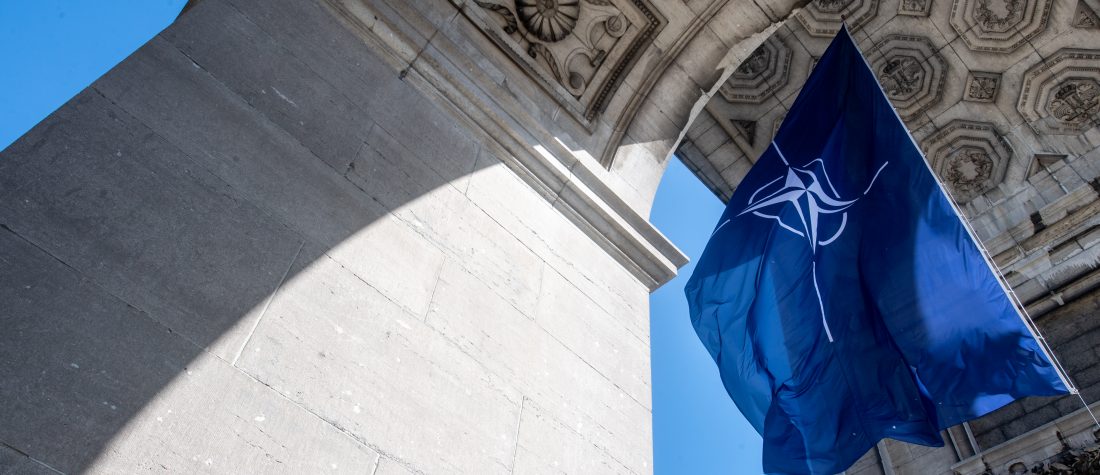This article is the sixth in a series of eight introducing the Liberal White Book: Europe 2030, the European Liberal Forum’s flagship publication highlighting the challenges that the EU faces and presenting a range of future policy options.
The European Union is frequently portrayed as an ageing international actor that is waning in both power and relevance. The seismic geopolitical power shifts that have occurred across world regions, some involving non-state actors, have only bolstered this unfavourable image and added to the considerable challenges facing the bloc. Such misconceptions about the EU are unnecessary and damaging – especially when the EU actually boasts a number of attributes which rank highly in comparison to those of other global players . On quality of life, for example, the EU still trumps most of the world. To maintain the bloc’s strong position and influence as a promoter of democracy, the EU must improve its global image. It can do so through gradually adapting its foreign and security policy – following its liberal tradition.
Europe’s strengths
The EU sets world standards in a wide range of sectors, from environmental and privacy protection to food safety, competition policy and anti-hate speech regulations for social media. Europe sets the precedent for an inclusive democratic model based on values like sustainability and cultural diversity, rather than capital accumulation alone. Through considerable international influence, the EU has been able to promote its values, which have spread far beyond its boarders. The bloc has excelled at multilateral diplomacy, humanitarian aid and trade deals. Membership of the union has increased, reflecting its appeal. Europe’s military power, too, is by no means diminutive; the collective military and defence expenditures of EU member states combined rival those of China and even dwarf Russia’s.
There’s work to be done
However, in the fields of foreign and security policy, Europe needs to broaden its engagement beyond the immediate neighbourhood. It must increase military spending, make future-oriented diplomatic moves and foster member states’ cooperation in order to maximise its potential as a transformative global power.
Value-led approach
The bloc’s key goal is to project its liberal values within its immediate neighbourhood, especially in countries hoping for their accession. To do so, it needs to devise political strategies aimed at improving efficiency; it must maximise its appeal in terms of power and lifestyle. This is particularly relevant in specific areas such as civil liberties, human rights, corruption, conservation and climate crisis response, which should hold all states to account equally. For this to work, the EU needs a future-proof plan. Europe should lead the world towards high standards of democracy, with liberal values and principles playing a key role in this respect.
New friends
The goal of increases in military spending should be resilience. Europe must move away from the fragmented cooperation and strategic sovereignty of the past, along with its over-reliance on allies like the US. New allies should be sought out at a time when diplomatic policy is evolving. Europe should be able to reach unanimity when it comes to identifying emerging powers, be they new groupings of countries or major cities. The future of European diplomacy may lie in relations between states and powerful cities, or even multinational corporations.
Integration, please
To better integrate its member states, the EU needs more frequent challenges to the status quo, which is currently only benefiting certain national elites and industries. Policy changes can help achieve this. For example, a more comprehensible security policy should strengthen public support. Subsequently, citizens will see the benefits from measures targeting threats like disinformation campaigns and cybercrime and the return value of increased spending will thus be obvious – encouraging further integration. This doesn’t require new institutions. On the contrary, the EU is capable of achieving ambitious political goals as a world leader relying on its existing institutions alone – provided they get the reinforcement, budgetary increases and unified support they need.
Look forwards
Rather than pursuing the same security and foreign policies of the last century, Europeans need to better understand and respond to the challenges that are unique to this one. The EU can harness its international influence to defend the liberal world order in ways that will ameliorate the lives of Europeans and citizens across the world. The world is facing a huge number of uncertainties. The European way forwards must be paved through inter-institutional coordination across all member states, along with coherent policy reform. Any changes should come in gradual shifts rather than revolutionary jumps.
Europe should be well-equipped to use its political power to affect positive global developments. Targeting 2030, it must enact a set of necessary reforms that will change the status quo, prevent fragmentation, envision unforeseen circumstances, promote liberal values, and, above all, ensure Europeans’ safety.


